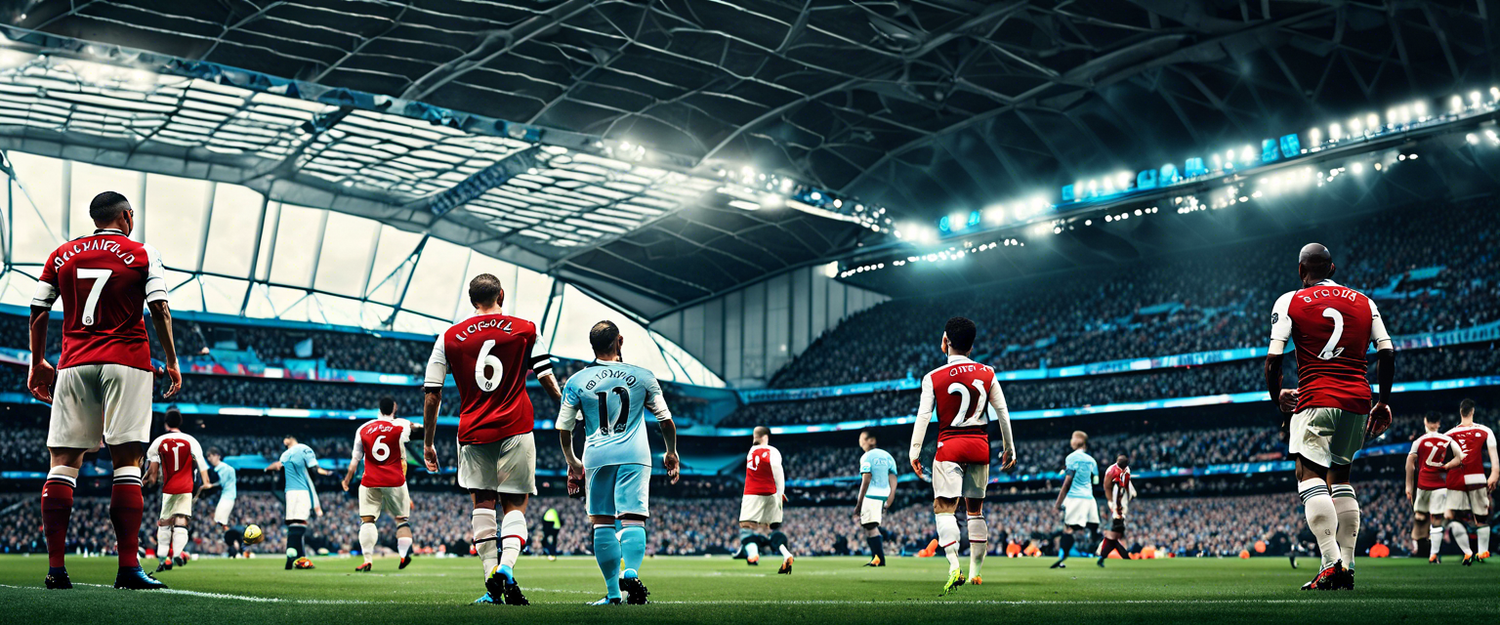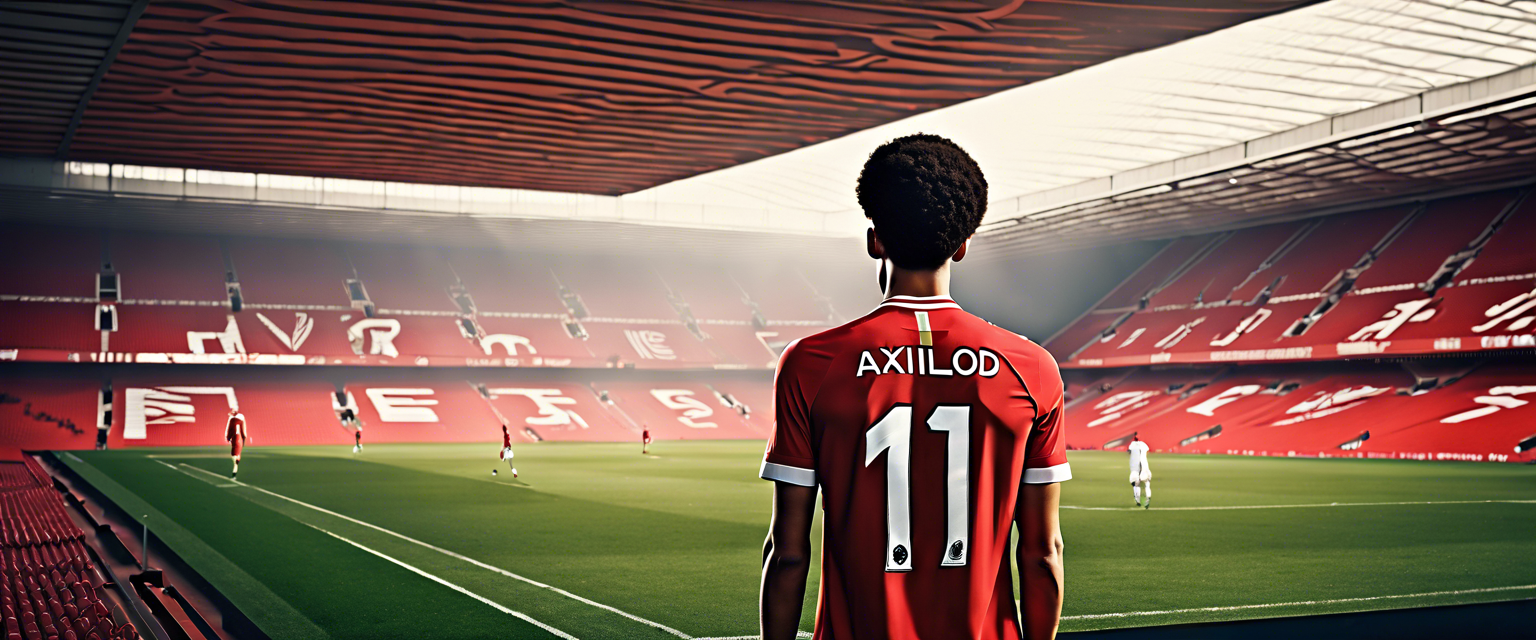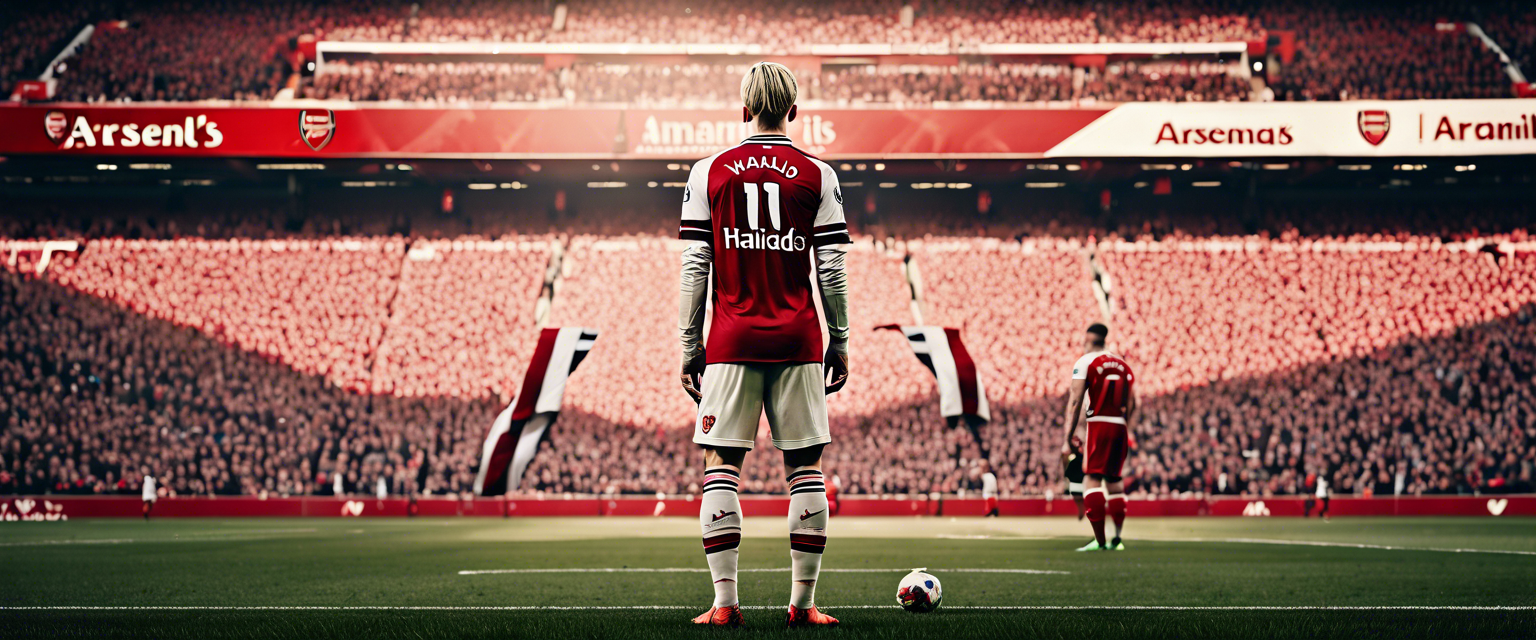Epic Showdown: Manchester City vs Arsenal - A 2-2 Draw
The much-anticipated clash of title rivals Manchester City and Arsenal ended in a thrilling 2-2 draw, marked by exceptional goals and controversial officiating decisions. In this article, we delve into three pivotal moments from referee Michael Oliver that shaped the match's outcome.
A Controversial Equalizer
Arsenal's equalizer through Riccardo Calafiori sparked jubilation among Gunners fans while leaving City players frustrated. The incident unfolded when Kyle Walker, the City captain, was called over by the referee for a conversation, leaving him out of position as Arsenal took a quick free-kick. This led to questions about the validity of the goal.
Referee's Call Elicits Mixed Reactions
As Walker sprinted back to his right-back position, he attempted to signal to Oliver that he was not ready. Yet, Arsenal seized the opportunity, laying the ball back to Calafiori for a stunning strike. Sky Sports co-commentator Gary Neville summed up the situation: "They're complaining the free-kick is taken before Walker can get back to his spot. I’d be annoyed." Coach Pep Guardiola echoed similar sentiments post-match, emphasizing the need for clearer communication from officials during such instances.
Inconsistency in Match Officiating
Arsenal fans expressed frustration over the inconsistencies in officiating, especially concerning yellow cards. Declan Rice was previously sanctioned for delaying a restart, prompting concerns about the referees' application of the rules.
Doku's Disputed Decision
During the contest, Jeremy Doku avoided a booking for allegedly delaying a free-kick restart by kicking the ball away. His defense was that he intended to pass it to an Arsenal player, but pundits were unconvinced. Shortly thereafter, Leandro Trossard received a yellow card for a similar offense.
Trossard's Second Yellow and Controversy Unfolds
The tension escalated when Trossard found himself sent off after receiving a second yellow card, following the precedent set by Rice earlier in the season. Both incidents raised questions about the consistency of officiating and how similar actions by different players led to vastly different consequences.
Arteta's Frustration
Coach Mikel Arteta openly voiced his concerns about the situation following the match, noting that such incidents seem to occur too frequently. He remarked, "It's really, really worrying…it’s less than a second." His frustration echoed the sentiments of many supporters.
Historical Context of Refereeing Decisions
The match's officiating calls drew comparisons to previous encounters, particularly citing an instance last season involving Mateo Kovacic, who escaped a similar fate under Michael Oliver's watchful eye. This historical precedent only heightens discussions surrounding officiating standards and VAR interventions in the Premier League.
Conclusion: The Way Forward
As the Premier League continues, the need for improved consistency in officiating becomes more apparent. Fans, players, and managers alike hope for a more standardized approach to managing game scenarios that may change a match's outcome dramatically.
Key Takeaways:
- Controversial decisions highlight inconsistency in officiating.
- Effective communication between referees and players is paramount.
- Continued dialogue is needed to improve officiating standards.
For more on the latest in Premier League action, check out our match reports and analyses of key player performances.



Laat een reactie achter
Alle reacties worden gemodereerd voordat ze worden gepubliceerd.
Deze site wordt beschermd door hCaptcha en het privacybeleid en de servicevoorwaarden van hCaptcha zijn van toepassing.